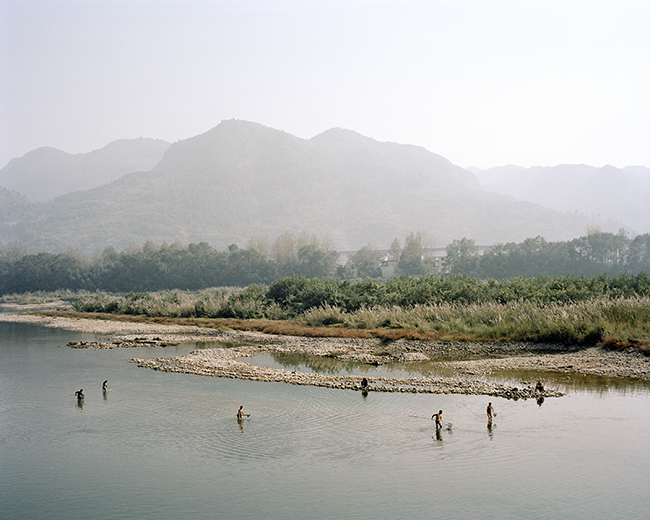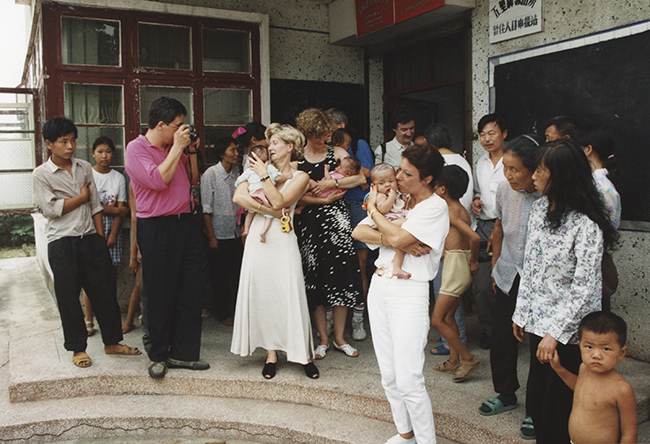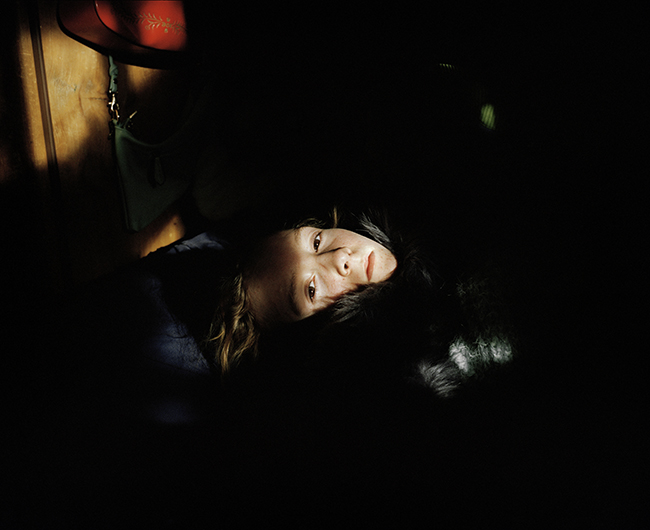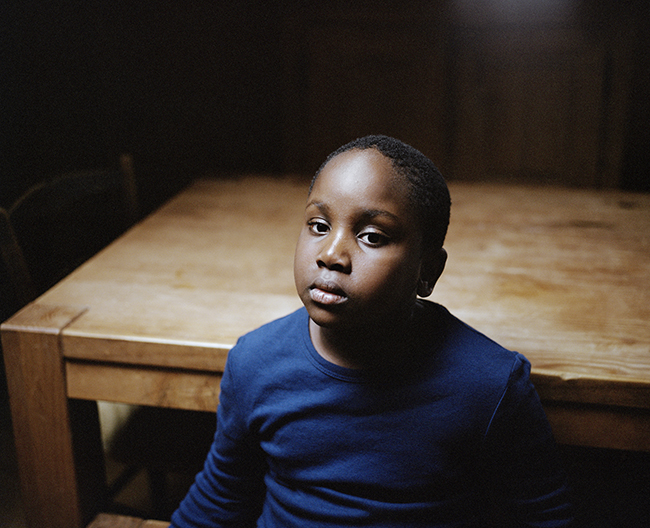
Youqine Lefèvre
Memories, Childhood, and Family through the photography of Youqine Lefèvre
TBILISI PHOTO FESTIVAL X FUTURES
Interview by René Mariam Nadareishvili
R. N.: In the Land of Promises, you explore international adoption and the birth control policies in China. It's also your personal experience. How did you find the process of mediating between your personal story and the broader history?
Y. L.: It's really about my relationship to my story and how I took a distance from it. The starting point is, of course, the fact that I was born in China and was adopted. And so, the book begins with the official documents, and then you have the archives mentioning six families, who went to China for 14 days. They travelled across the countries to adopt six girls, and then the second part of the book is the richest one. So, it starts with a more personal picture that I took during my first trip when I went back to China for the first time in 2017. So, it begins with the picture of the orphanage of the police station, where I would have been photographed, and of the neighbourhood, where I would have been found by someone. We don't know if it's true. And then after these pictures, I take a step back from my own story, and it's more about the birth control policy. Before the first trip in 2017, I didn't do any research about the birth control policy. I thought I would find out about this there. And during this first trip, I spoke with my tour guide, also the people I met there and visited the orphanage and the place where I’m originally from.

Youqine Lefèvre. The Land of Promises. 2017
R. N.: What major transformations did your original concept undergo during your journey in China?
Y. L.: For the first time, I went back with my adoptive father, because I felt more comfortable with someone, who had direct memories of the city or of the orphanage. Because when I was adopted, I was only eight months old. I didn't remember anything. It was emotional as I went back to my birth province. The pictures I took in 2017 also are more personal, than the ones that I took in 2019 when I went back for the second time. After getting back to Belgium, before the second trip, I did broader research about the birth control policy. And then I went back to China in 2019. I stayed there for two months. I was alone and it helped me to figure out the cultural meanings of the policy. As in the West, we have a bad vision of the one-child policy, it’s easily criticized. I tried to meet a lot of people, families to understand how the one-child policy has impacted their lives. And in fact, communication with them helped me to deconstruct a lot of ideas we have here in the West. So, I got a more balanced point of view on this policy, on its consequences.

Y. L.: The project is a mix; some pictures are more documentary and others are more speculative. One was about ancestor worship, and that's something completely from China. I'm not sure that it's only from China, maybe in Asia. I wanted to understand the reason why Chinese parents prefer to have boys instead of girls, and ancestors’ worship is part of this reason. I can also say that most of the portraits are accompanied by testimonies, stories of people or families. You learn a lot about Chinese culture, the way people support each other, get together, get married, about the social pressure to have a child.
R. N.: The Project far from home also develops around the children and adoption policies. It consists of photographs of the children in foster care, the environment, and unique details of their everyday life. What do these projects have in common?
Y. L.: I stayed two years in the French part of Switzerland to work on this project. But it's weird because I went there by chance. The building is isolated in the mountains and the children were quite young. They cannot be adopted, they stay there, while their parents deal with problems like drug abuse, violent behaviour, mental health issues, etc. So, it's not about adoption at all. I saw them leaving the foster home and going back in a few days. And from the beginning, it was also a decision that I didn't want to take the portraits of the educators or the parents. It was really about the children. There are portraits, landscapes, and also some pictures of the stones, which are related to the boy, who believed in the power of stones.
I didn't do any research before or after, it's like just an encounter, and it was also a way to already work on the topic that I am obsessed with, like families. It brought memories, but it was also a way to put distance between me and the subject. So, it was a good start, and during that period I started to work on my photographic style.

Youqine Lefèvre. Far from Home. 2016
Y. L.: Usually, I have an idea of what I want to shoot off the subject, but I don't really have the concept. So, I start to shoot and work. And then later, I decide what I’ll eventually do. It’s more improvisation. For example, I didn’t know the boy collected the stones, until I went to the bedroom and saw the table with all the stones and I decided, okay, I will do something about it.

Youqine Lefèvre. Far from Home. 2016
R. N.: Do you have a project you're working on right now and you are willing to share?
Y. L.: I wanted to go to China to continue working on the birth control policy. But I'm not sure that I can go back, not sure if I'm blacklisted or not. And so, I developed another idea as I’m interested in demographic questions and issues, and I know that in Japan, the birth rate is really low and is tied to the culture as in China, but the reason why is completely different. And I think it's fascinating, too. And now the goal is to get residency there and to work on the project. I'm just waiting for the country to open.
Cover image: Youqine Lefèvre. The Land of Promises. 2017.
This series of articles are published in order to create new artistic opportunities for the Futures Talents - the photographers that are part of Futures platform. In 2020 Tbilisi Photo Festival has joined the FUTURES - Europe based photography platform co-funded by the Creative Europe program of the European Union. Futures bring together the global photography community to support and nurture the professional development of emerging artists across the world. The project implemented in partnership with Tbilisi Photography & Multimedia Museum.